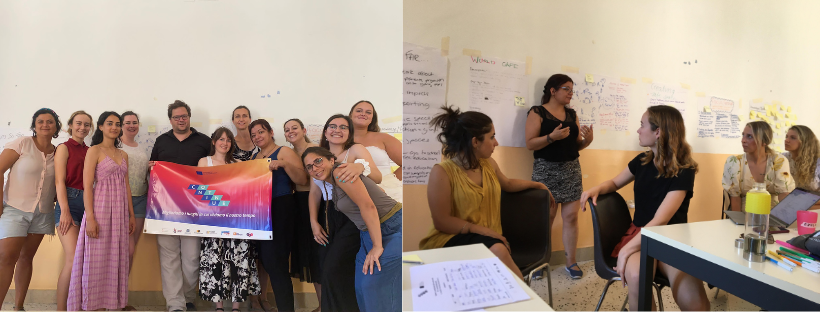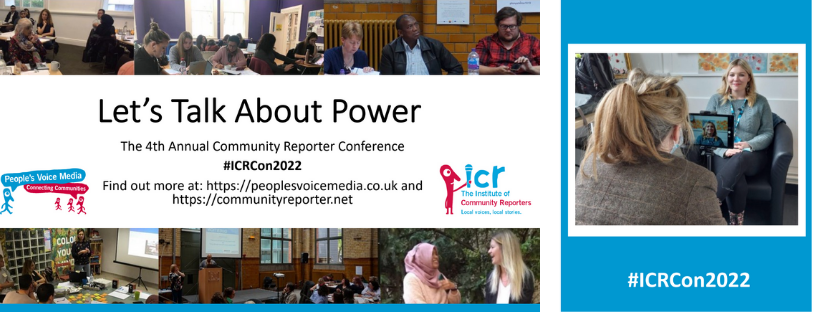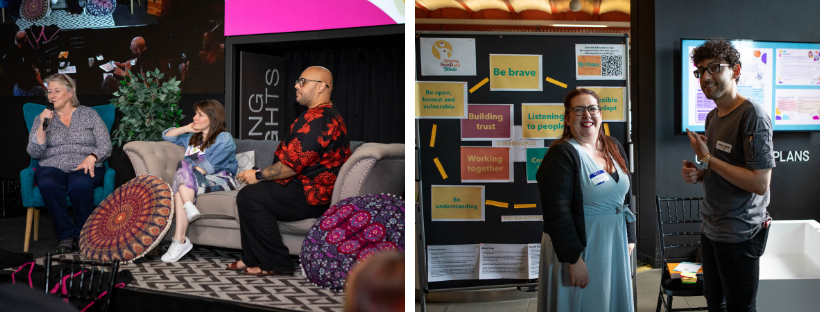CONTINUE PROJECT: KNOWLEDGE EXCHANGE TRAINING & TNP MEETING

This week, members of the PVM team have been in Palermo, along with partners from the CONTINUE Project, to deliver training on Knowledge Exchange activities and share updates on work package progress. A representative from Gorse Hill Studios – our local partner based in Stretford, Greater Manchester – also joined us, for a week of shared learning and development.
We kicked off the week by exchanging key learnings from stakeholder interviews which partners had conducted with people in their local communities. The interviews were with a range of different people including teachers, youth workers and representatives from local government and explore their thoughts on how the COVID-19 Pandemic has impacted the lives of young people. Each partner presented the key learnings from each of the interviews, then we moved on to discussing how we could share this information with other people working in the field.
As part of the training, the group exchanged ideas for activities that could be used in the knowledge exchange event to facilitate discussion – ideas ranged from the Fishbowl technique to Focus Groups, creating safe spaces and World Café. We were then provided with a template session plan which each of us will adjust to suit the needs of the groups we’ll be working with.
Partners are now fully equipped to organise and deliver their knowledge exchange events. This stage of the project will be wrapped up by the end of September. Each partner will then write up a set of local policy briefings (using the learnings from the KE events) which will be shared in the hopes of influencing change.
A further Pan-European Knowledge Exchange event is set to take place by late November, combining the learnings from the local sessions and building further understandings – this will feed into a final Pan-European Policy briefing which is set to be released in the New Year.
The TNP took place the day after the training sessions and enabled partners to update on the progress of the project and discuss future plans.
Stay up to date with project happenings on the PVM blog and be sure to follow us on social media for more frequent updates.



